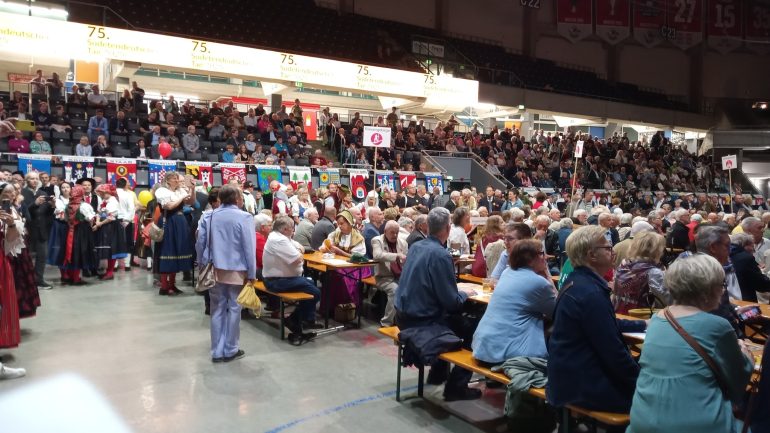The Sudeten German Landsmannschaft (SL) will hold its annual congress in Brno next year, it announced today. This will mark the first time that the group has held their conference in the Czech Republic.
In June, the local organisation Meeting Brno invited the Sudeten Germans to Brno. The Sudeten German leader Bernd Posselt thanked them for the invitation.
This year, the 75th meeting of Sudeten Germans, deported from Czechoslovakia after World War II, was held in Regensburg, Germany.
The 76th SL congress will take place from 22-25 May 2026, with the motto: “Life Is a Meeting”.
Posselt said the congress will be “a celebration of common culture, diversity, dialogue and understanding to which all generations of Sudeten Germans as well as their Czech and international friends are cordially invited.”
In June, Meeting Brno festival director Petr Kalousek invited the Sudeten Germans to Brno, acknowledging the centuries of coexistence of Czechs and Sudeten Germans in the Czech Lands.
“This invitation is both a symbol of mutual understanding and coming to terms with a complex and, of course, often tragic history, as well as a symbol of a Europe united against rising nationalist political trends, or precisely against those who caused the Second World War,” Kalousek told CTK at the time.
In a press release today, Posselt thanked Meeting Brno for the invitation. He said the meeting in Brno, 80 years after the Sudeten Germans had to leave their homeland, will be “a sign that it is possible to bridge the trenches dug by nationalism and totalitarian ideologies and lay the foundations for a better future in a united Europe.”
Next year’s Meeting Brno festival will take place alongside the planned meeting of Sudeten Germans, from 22-31 May.
Meeting Brno organises the annual Reconciliation Pilgrimage commemorating the deportation of German-speaking inhabitants of Brno after WWII. This year, Sudeten Germans presented the human rights prize to Meeting Brno at the Sudeten German Congress in Regensburg.
Relations between the Sudeten Germans and the Czech Republic have improved significantly in recent years. The decision of the Sudeten German Homeland Association (Landsmannschaft) to delete references from its statutes seeking the return of the property confiscated during their post-war deportation from Czechoslovakia was a significant contributing factor to improving relations.
The Czech Republic also took a number of conciliatory steps, including the Munich speech by Prime Minister Petr Necas in 2013, in which he expressed the country’s regret for the harm caused to the Sudeten Germans during their post-war deportation.
Around 3 million Germans were expelled from Czechoslovakia after the Second World War on the basis of the decrees issued by Czechoslovak president President Edvard Benes. According to a Czech-German commission of historians, between 15,000 and 30,000 people lost their lives in the process. During the previous more than six years of the Nazi rule, some 320,000 to 350,000 inhabitants of the former Czechoslovakia perished.








